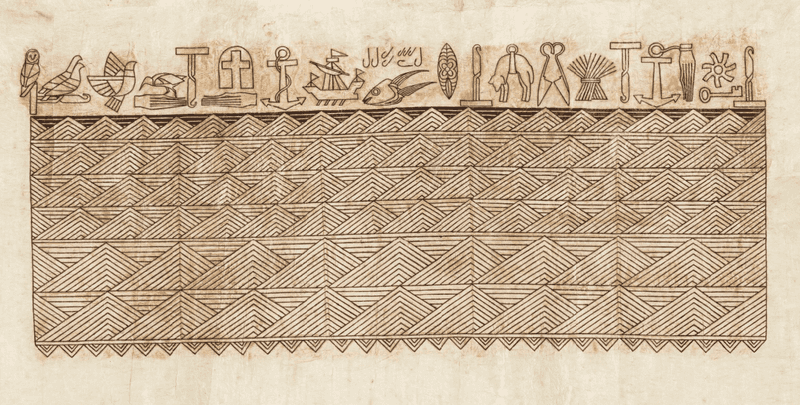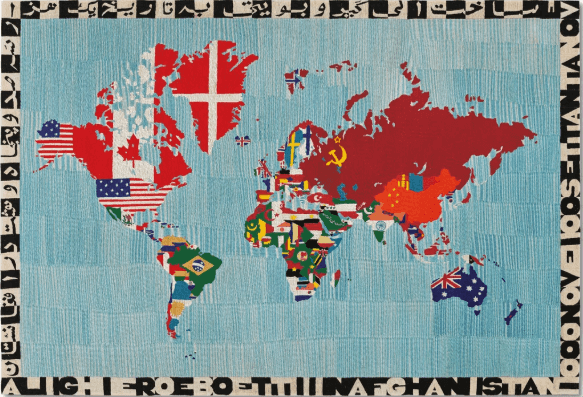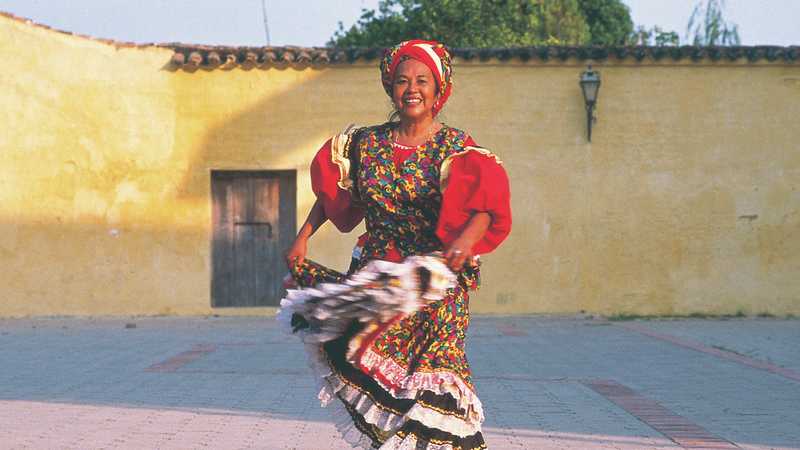
The United Nations Framework Convention on Climate Change was established by world governments in 1992, creating the annual Conference of the Parties (COP) meetings to negotiate climate agreements.
Despite recurring hopes and fanfare, the COP system has failed by any objective measure. Global CO2 emissions have surged from 22 billion metric tonnes in 1992 to 37 billion in 2024. Strikingly, more than half of humanity's total CO2 emissions have occurred since 1992 — corresponding with the acceleration of value transfer from the periphery to empire that followed the fall of the Soviet Union.
Far from slowing planetary destruction, COP has coincided with its acceleration. The past 12 months have been 1.6 degrees above pre-industrial averages — beyond the threshold where irreversible tipping points become "likely" according to established science. One such tipping point is the melting of the West Antarctic Ice Sheet, which contains enough water to raise global sea levels by seven meters.
This catastrophic failure spanning two generations of world leaders is no accident — it's a feature of the system, produced by and reflected in the class divisions within and between countries.
Reducing annual CO2 emissions means leaving fossil fuels in the ground — lots of them. These assets are worth tens of trillions of dollars. If they became worthless, not only would Big Oil collapse, but the banks financing them would face losses so massive they could destabilise the entire financial system.
Curtailing the excess emissions destroying our planet means accelerating the reorientation of the global economic order away from the imperial culprits and towards the affected peripheries. This systemic threat prevents other sectors of capital — even those facing losses from climate disruption, crop failures, and rising seas — from effectively opposing fossil fuel and financial interests that keep reforms and funding severely limited.
Take climate finance, for example. At COP15 in Copenhagen in 2009, 43 wealthy nations promised $100 billion in "new and additional" annual funding by 2020 to help Global South countries address climate change. While $100 billion sounds substantial, it represents merely 0.1% of global economic output — hardly a priority by any measure.
This $100 billion pales against the $242 trillion appropriated from South to North in resources between 1990 and 2015. Jason Hickel et al demonstrate in their recent paper that this drain represents over 10% of global economic output flowing unpaid from South to North annually.
Rich countries failed to meet even this modest target by 2020. They claimed success in 2022, but after repurposing existing development spending as climate finance, the actual "new and additional" funding reaches only about $75 billion. The total percentage of rich country GDP spent on development finance, including climate finance, actually decreased from 0.45% in 2009 to 0.44% in 2022.
These amounts fall dramatically short of Southern needs. At this year's COP, Southern negotiators, backed by experts, demanded $1.3 trillion annually by 2035. Rich countries promised just $300 billion — far below what's necessary.
Countries of the South realise they cannot wait for Northern governments — controlled by fossil fuel and financial interests — to change course. They must find alternative paths forward for survival.
One such initiative is unfolding at the Peace Palace in The Hague, where the International Court of Justice — the world's highest court — is hearing history's largest climate case. Led by Vanuatu and brought by Pacific islanders, the case seeks to hold wealthy nations legally accountable for ongoing climate breakdown, which particularly threatens Pacific island states.
In his address to the Court, Vanuatu's special envoy for climate change and environment, Ralph Regenvanu, placed responsibility squarely on "a handful of readily identifiable states" that produced most emissions. These emissions drive rising seas and severe disasters in Vanuatu. As Regenvanu stated, "We find ourselves on the frontlines of a crisis we did not create."
Vanuatu's legal team, including PI Council Member Julian Aguon, argues that wealthy nations have violated international law by issuing new fossil fuel extraction licenses, subsidising the sector, and failing to provide adequate finance to Global South states in COP negotiations.
The ICJ will review evidence over the next week before its judges issue an advisory opinion. Though non-binding, this ruling will serve as an authoritative reference in future climate litigation and international negotiations.
Like South Africa's ICJ case against Israel over Palestinian genocide, we see Southern countries strategically using Northern-created institutions to expand space for Southern resistance.
Latest from the Movement
Turkish government cracks down on pro-Palestinian protestors
Last week, researchers from the Stop Fuelling Genocide campaign, supported by the Progressive International revealed that Türkiye is still exporting oil to Israel despite its own embargo. The research, which was covered in the Turkish media, found Azeri crude oil was shipped directly from Ceyhan Port located in Türkiye’s southern Adana province to Ashkelon, Israel.
Since the revelation, protestors have dogged Turkish President Recep Tayyip Erdoğan, demanding that Türkiye institute the economic blockade on Israel that it has announced.
Nine protestors from Filistin İçin Bin Genç, a youth movement for a Free Palestine in Türkiye, were arrested on Monday 2 December by the Turkish government. They face charges of insulting the president and as of Friday 6 December are still imprisoned.
PI in Honduras
Between 23-28 November 2024, the Progressive International returned to Honduras with a high-level international delegation of experts, academics, politicians and representatives of civil society organisations from Latin America and the United States. The delegation’s mission was to support the government of President Xiomara Castro's decision to reject the the World Bank’s private court system, International Centre for Settlement of Investment Disputes (ICSID), the Supreme Court’s ruling that the system of extreme special economic zones, known as ZEDEs, is unconstitutional and to listen to the communities affected by the ZEDEs.
During the visit, productive meetings were held with high-level authorities of the Honduran government, including: the Private Secretary of President Xiomara Castro, the Attorney General, the Deputy Foreign Minister of Honduras, the Presidential Commissioner for ZEDEs, the Minister of Tourism, the Mayor and Governor of Roatán, amongst other important actors in the fight against the ISDS.
A tale of two towns
UK-based think tank and PI member Common Wealth has produced a detailed new report into two former industrial towns in England’s East Midlands. Far from being forgotten or left behind, England’s former mining and manufacturing towns have been testing grounds for successive waves of neoliberal policymaking. Although these policies have failed at their stated aim of generating well-paying jobs, they were successful at remaking former industrial heartlands into hubs of logistics and care work. You can explore the report’s innovative interactive map here.
Familiar repression, familiar resistence in India
On Friday 6 December, Indian farmers set out to march from Punjab to the country’s capital Delhi to demand better prices for their crops, no hikes in electricity tariffs, a debt waiver and pensions for farmers and farm labourers. They were met by police tear gas and pepper spray.
These developments come just two years on from Prime Minister Modi being forced to drop two hugely unpopular laws in the face of the largest strike in human history by Indian farmers and their worker allies.
Biden, take Cuba off the list
Over 50 elected officials, labour leaders and solidarity organisations in the United States have called on President Joe Biden to use him remaining time in office to remove Cuba from the State Sponsors of Terrorism list, ease Trump-era sanctions, and send humanitarian aid. You can read the letter and the full list of names here.
Google knew the crimes but signed anyway
New reporting from The Intercept and The New York Times reveals that Google Cloud CEO Thomas Kurian was briefed on the human rights implications of Project Nimbus, and signed on the dotted line regardless — putting Google’s military contracting aspirations and profit over Palestinian lives.
Project Nimbus is a $1.2 billion dollar contract between Google, Amazon and Israel to provide cloud computing services. Despite Googles claims that Project Nimbus “is not directed at highly sensitive, classified or military workloads relevant to weapons or intelligence services.” New research shows that atleast 70% of Project Nimbus’s government revenue is a direct flow of cash from the Israeli military to Google.
Read the statement by Google workers organising with the No Tech for Apartheid campaign on the latest revelations here.
The end for Yoon Suk-Yeol
After a botched attempt at an auto-coup, South Korean President Yoon Suk-Yeol faces an impeachment vote. He declared martial law, only to face immediate protest and have his decree overturned in parliament.
In doing so, “the Yoon Suk-yeol regime has declared its own end of power,” according to a statement by the Korean Confederation of Trade Unions (KCTU) published by the Progressive International.
Glovo backs down
Spanish food delivery company Glovo has been forced to comply with Spain’s Riders’ Law, brought in by Labour Minister Yolanda Diaz. Glovo has agreed to end its bogus self-employment model and officially recognise over 15,000 riders as employees, following sustained pressure by the trade union CCOO and others.
Breyten Breytenbach (16 September 1939 to 24 November 2024)
Breyten Breytenbach, the South African dissident, writer and painter died in Paris on 24 November. He spent seven years in apartheid’s prisons, two of them in solitary confinement.
His prison poems were exquisite. In Your Letter is Delightful he recounts the experience of receiving a letter from his wife Yolande Ngo Thi Hoang Lien.
your letter is delightful, larger and lighter than thoughts of a flower when the dream is the earth of the garden, as your letter opens there is an unfolding of sky, of word from the outside of ample spaces
His wonderfully enlivening poems, ripped the Afrikaans language, the predominant language of the black working class in parts of South Africa and Namibia, from the stultifying grip of apartheid that sought to deny its vigour and creole origins.
die maan is ‘n silwer skree the moon is a silver scream
Breytenbach was living in Sengal when he received the news of Mahmoud Darwish’s passing in 2008. He had been with Darwish, the great Palestinian poet, in France a few weeks earlier.
The sun was setting, there was a soundless wind in the trees and from the neighbouring streets we could hear the voices of children playing. And for hours we sat on the ancient stone seats, spellbound by the depth and the beauty of this poetry.
The following year he published Voice Over: a nomadic conversation with Mahmoud Darwish. The poems, offered in English and Afrikaans and marked by personal and political loss, weave the voices of the two poets together.
Wait a little so that wind not bewilder me I will protect our dreams like mirrors for we have seen the faces of those who will throw our children from the windows
More ways to stay up to date
The PI has launched more ways for you to stay up to date with international politics and events.
Stay up to date with the latest news from progressive forces around the world by joining our Telegram group and our WhatsApp group.
We have also taken our research project charting the Reactionary International to Telegram too, which a dedicated channel bringing you the latest news from our opposing forces.
You can also now follow us on TikTok, where our recent video on the Make Amazon Pay global day of strikes and protests gained over 1 million views. You can watch that video here.
If you think others would value our work, please share these channels and encourage people to sign up to this weekly newsletter here.
Art of the Week: Robin White (Ngāti Awa, 1946 Te Puke, Aotearoa New Zealand) is known for her screen-printing, painting, and collaborative works on Tapa cloth. She is from a community of pacifist artists who fled to rural NZ in the 1970s to live meagre remote lifestyles. She is recognised for her landscapes painted during this time, depicting the farmed hills, simple colonial buildings, and stoic locals of British and Pacific descent.
White turned to the practice of Tapa in the 1980s when her family was based on the remote Pacific atoll of Kiribati, the first country threatened to be submerged by sea level rise. Tapa involves a collective laborious transformation of bark into cloth, upon which natural dyes are applied. The geometric forms in the work, which is almost three meters wide, represent the sea. In 2013, President Tong spoke of climate-change-induced sea level rise as "inevitable".



